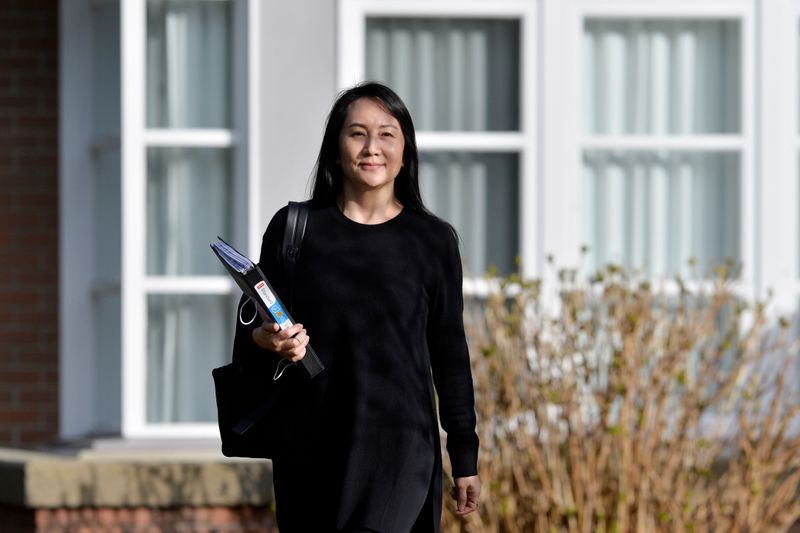By Sarah Berman and Moira Warburton
VANCOUVER (Reuters) - Canadian Border agents had legitimate reasons to question Huawei Chief Financial Officer Meng Wanzhou for three hours before her arrest by federal police, a prosecutor said in court on Wednesday, pushing back at defense arguments.
Meng's lawyers contend that abuses of process took place in the lead-up to her arrest in December 2018 that should invalidate the U.S. extradition request.
Meng, 49, was arrested by the Royal Canadian Mounted Police on a U.S warrant at Vancouver International Airport. She has denied any wrongdoing and is fighting her extradition.
She is accused by the United States of misleading HSBC about her company's business dealings in Iran, causing the bank to violate U.S. sanctions.
Diba Majzub, a prosecutor for the Canadian government, responded to accusations by Meng's lawyers that Canadian police and border agents carried out a covert criminal investigation on behalf of the FBI under the guise of a border examination before her arrest.
Majzub said there was "no evidence" of such a plan and the border agents had their own grounds for investigating Meng's eligibility to enter Canada. He said Canadian Border Services Agency officers (CBSA) noted criminality and national security concerns in reports created on the day of her arrest.
"You have officials from two agencies investigating the same conduct but for different reasons - both of which are legitimate," Majzub told the judge.
Majzub said the RCMP "gained no advantage" by allowing CBSA to go first, and that police did not suggest any particular line of questioning or request that electronic devices be searched, making it "impossible to ascribe a nefarious motive" to police.
Shortly after Meng was detained, China arrested two Canadians on espionage charges. The pair faced trials in the past week, although it is not known when their verdicts will be announced.

Meng's case is set to wrap up in May.
